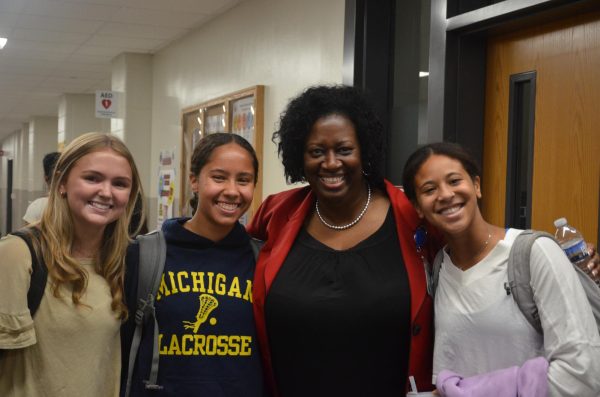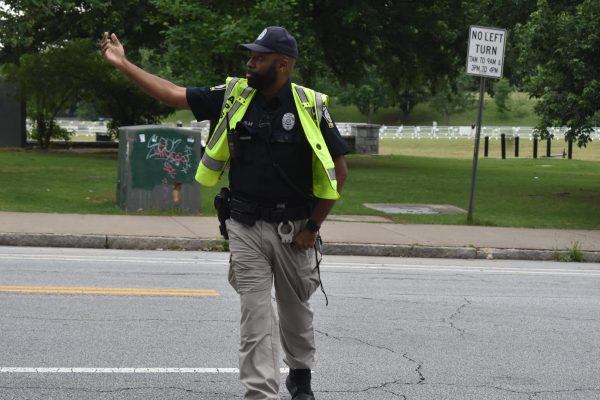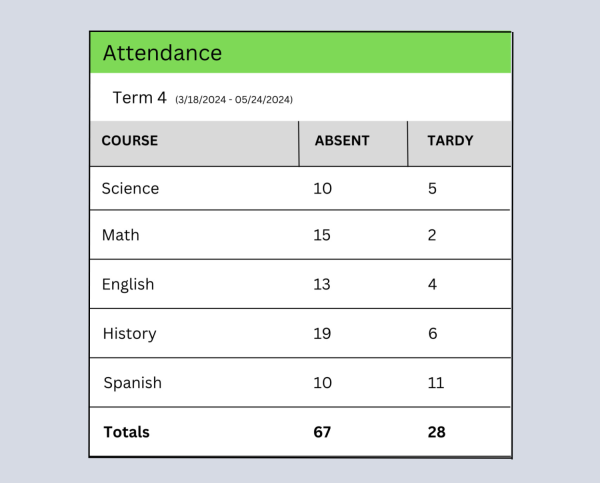City forces closure of Peachtree-Pine homeless shelter
November 10, 2016
By Gaby Paez
No roof, no warmth, no consistent shelter, no place to call home. This is the reality of the thousands of homeless men, women and children in the city of Atlanta struggling to find shelter every night.
Peachtree-Pine is an overflow shelter at 477 Peachtree St., in the heart of Grady’s attendance zone, that helps other shelters that lack space or funding. According to Anita Beaty, director of the Task Force for the Homeless and the Peachtree-Pine shelter for 31 years, the shelter serves an average of 575 individuals a day.
Part of the shelter is a small transitional housing program, which is mainly operated by residential volunteers who are currently living at the shelter and have been trained as case workers and security guards. The shelter now serves women and children in order to pick up the load from the city, which stopped providing emergency housing to women and children three years ago.
“We do what the city always did and doesn’t do anymore,” Beaty said. “We know that if we weren’t there, thousands of people wouldn’t have any place to go because we pick up the slack for everybody.”
City Strongarms Shelter
The Atlanta City Council voted unanimously to use its eminent domain powers (the right of the government to claim private property for public use, with monetary compensation) to acquire the properties that make up the Metro Atlanta Task Force for the Homeless, including the Peachtree-Pine shelter. The purchase of these properties would shut down the shelter and displace its residents.
Rudy Urqheart, a residential volunteer at Peachtree-Pine currently working as a caseworker, believes that no matter what happens, people can not be left without shelter.
“No one should be homeless, no one at all,’’ Urqheart said. “Understand, the worst part of being homeless, is not being homeless. The worst part is that while everybody else is walking around during the day time knowing where they’re going to sleep, and they have no cares at all.’’
Urqheart added, “Those who have to face homelessness all day long on their minds, they’re wondering where am I going to sleep tonight, and they don’t even have a chance to have a normal life where they can even think about doing anything because the basic necessity of any individual is to have a place to sleep.”
The first mention of closing the shelter started in December 2009 when the first actions of due diligence and legally-required steps to acquire the property were supposed to be taken.
“Realistically, I just hope that they’ll leave us alone,’’ Beaty said. “We know that an eminent domain process is a legal process, and it doesn’t happen overnight. It’s barely begun, and the city hasn’t done any of the due diligence that they require themselves to do in the ordinance that they passed last year.”
Ordinance 16-0-1501, also known as the Hall-Wan Ordinance, after city councilmen Kwanza Hall and Alex Wan, whose districts of Midtown and the Old Fourth Ward include the shelter or area immediately around it, pushed for eminent domain to buy the Task Force.
The ordinance aids Mayor Kasim Reed’s hopes to convert the properties into a fire department and a police station for the Atlanta Police Department’s SWAT team. Only Councilwoman Felicia Moore opposed the takeover of the shelter’s property.
“There is a police precinct right across the street right now,” Beaty said of a small precinct at the corner of Peachtree and Pine streets. “It’s a silly idea that the mayor came up with, and I think it’s a political move on his part to try and win the favor and support financially … for whatever he wants to do next, but it’s no secret that they’ve stirred up a storm.”
Displacing The Homeless
Troy Harris, Information Technology Coordinator for Peachtree-Pine for 11 years, explains that the city is only creating more issues and a higher cost for themselves by closing the shelter.
“You have people who have nowhere else to go, so if you have nowhere else to go, and if the housing that you do have is no longer there, you put people in a desperate situation,” Harris said. “Then all this crime that you [the city] have been talking about when you were lying will become true.’’
Harris says closing the shelter puts the homeless residents in a near impossible situation.
“How can you pay for a hotel room if you have no money? You’re gonna break into someone’s car, steal their laptop, maybe a phone, sell it, and pay for the hotel room and something to eat,’’ Harris said. “When people become desperate because they have no destination, use your imagination about what people will do to try to secure a place.”
However, Councilman Hall believes the change is a step in the right direction to reduce homelessness and that this plan could result in a win-win-win for the Task Force for the Homeless, Atlanta and the community as a whole. Hall believes some of the shelter’s initiatives could be integrated into the new plans.
“We need a truly holistic solution for those living in the margins,” Hall said. “I believe that shelters serving smaller numbers of clients, with easy access to wrap-around social services, can more effectively give people a chance to transition out of homelessness to a better life.’’
Hall pointed out the city is overrun with 9,000 vacant houses and apartments that could serve as temporary shelter until the homeless can get on their feet.
“Converting some of these dwellings can be a part of the solution,’’ Hall said. “I think that now the city has the strategy and resources lined up to really address this problem. I believe we must do better for our homeless population, that’s the bottom line.”
Shelter’s Negative Image
Many members of the community are in favor of the ordinance. The Peachtree-Pine shelter has a negative image and is viewed as a source of criminal activity, including violence. A shooting in May at the shelter and crowds of disorderly homeless people on the sidewalks and street corners just outside the shelter have driven the community to favor the mayor’s plan.
According to Harris, the surrounding loiterers are a result of police actions to clear neighboring communities of any disruptive people. Beaty believes that people congregate around the shelter because the police allow it.
“It becomes a safe haven for drugs and alcohol because of the people who are allowed to be there imply there [are] illegal trades,” Beaty said. “We’ve got to clean it up, and people need to educate themselves about what’s really going on.”
Harris argues that while some residents may have issues with drugs and alcohol, there is a distinction between those seeking help and those just hanging around the shelter.
“There is a difference between a homeless man who smokes crack and a crack smoker who is homeless,’’ Harris said. “The homeless man is seeking shelter and has an issue, and it’ll take a recovery and some other pieces to help him, but he has a problem and realizes he needs to work on it. A crack smoker who’s homeless, drugs are primary, he doesn’t think about recovery; he doesn’t care if he stays here or not; he’s going 24 hours trying to support his habit.’’
Beaty believes discrimination is behind the city’s closing of the shelter.
“They say things like ‘those people shouldn’t be on Peachtree Street,’ and we say `who are those people?’” Beaty said. “People are profiled at Emory [University Midtown] Hospital (across the street at 550 Peachtree St.) all the time and asked to leave or threatened with arrest all the time. They’re asked if they came from across the street, and if they say yes, even if they have money to buy something to eat (in the hospital cafeteria), they’re told they can’t come in. It’s just blatant profiling and discrimination.”
Urqheart, although a member of the shelter, tries to see both sides of the argument.
“I look at life with an unbiased perspective. I see what’s going on around here, and I can understand both points of view,’’ Urqheart said. “But to look at the core of what Ms. Anita’s (Anita Beaty’s) heart is, and that is `no individual should sleep in the streets,’ so when you wipe away all of the rhetoric and this and that, that’s the core of the matter.”
The fight for the shelter will continue as the city resumes action to buy the Peachtree properties owned by the Task Force. Homeless advocates and activists at Peachtree-Pine say they will continue efforts to keep the shelter open and bring attention to their cause.
“If they [the homeless shelter residents] don’t have a plan, everything will unfold. There’s no negotiating, everything will play itself out,’’ Urqheart said. “There will be a lot of individuals who in some kind of way will find somewhere, even if it’s on the streets of Atlanta. They’ll find somewhere to lay their heads at nighttime. That would be a travesty. As for me, I don’t have any worries at all because I’m gonna be okay. My trust is in the Lord.”












